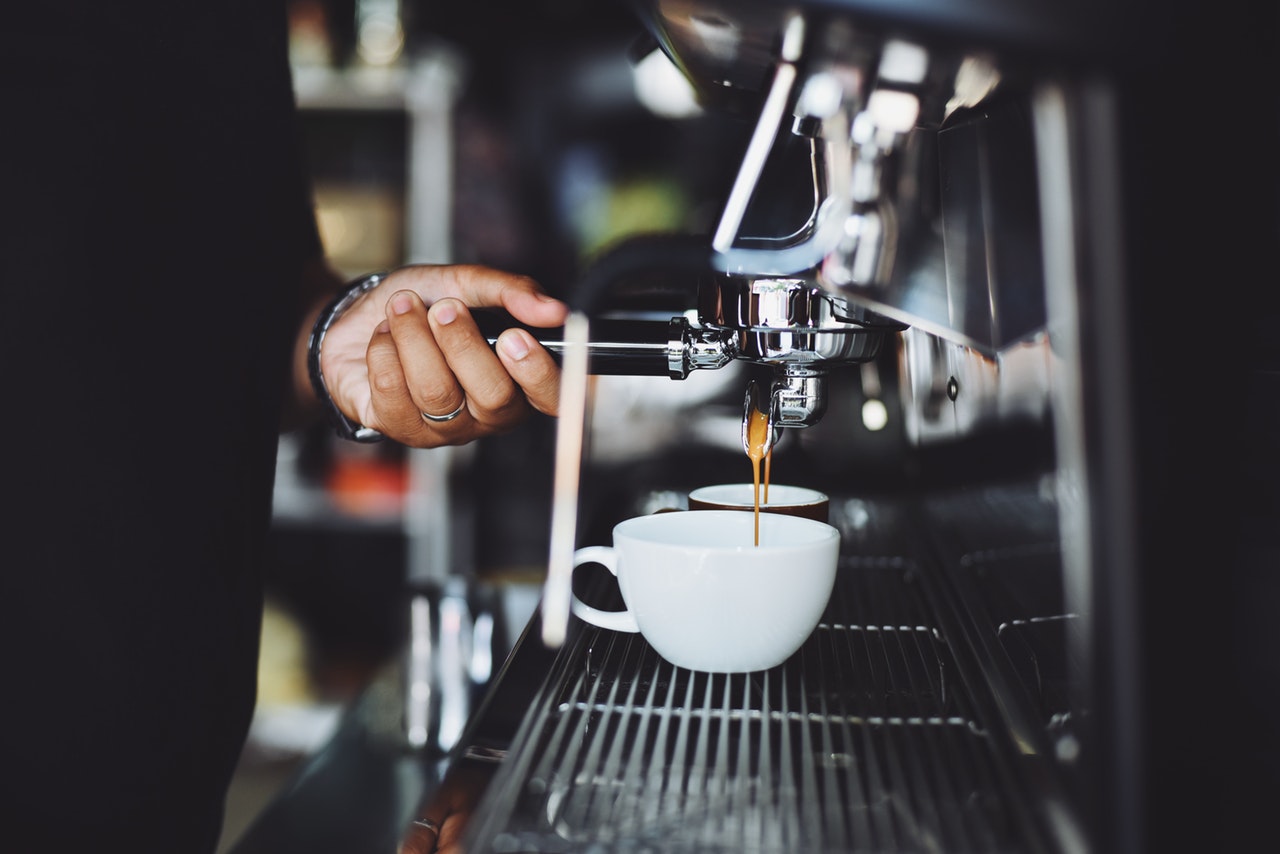Coffee shops are a remarkable spot in the modern landscape. I respect that they have the courage to stay open late into the night, unlike those bagel-making sissy shops that close at two in the afternoon.
Their nature is ever-changing from a hurried bustle in the early morning hours to temporary office space in the afternoon and peaceful sanctuaries at night.
Probably my favorite coffee shop of all time is Mozart’s Coffee Roasters on the Colorado River in Austin, Texas. It is a beautiful spot full of creative people with a laid-back vibe – a great area to sit, think, or write.
 Setting and mood matter. A coffee shop at eight am is very different than at eight pm and intolerable at three pm, when high school gets out.
Setting and mood matter. A coffee shop at eight am is very different than at eight pm and intolerable at three pm, when high school gets out.
The only thing worse than a caffeinated teenager is like, um, a coffee shop full of them, omg.
When the great history of American civilization is written, coffee shops will be remembered as the early pioneers of wi-fi access. For most of the early two-thousands, coffee shops were the sole hotspot oasis in the barren desert of our still largely unconnected world.
That was a welcome change from the late 1990s when coffee was served in oversized-ceramic mugs more fit for holding soup than for casual sipping. I’m glad that fad passed not just because it looked ridiculous but because it was.
I’ve experienced the many different functions coffee shops provide and equally appreciate them all, especially the lack of guilt-tripping waitresses complaining they need to put on a fresh pot.
Some coffee shops are like libraries without the whispering, especially suburban Starbucks after dark. I often studied in my local Starbucks during law school. I told myself that the noise and semblance of social interaction provided a needed change in atmosphere, but I really just wanted to be seen.
What fun is it to slave behind expensive legal books for hours on end if nobody notices how smart you look? The key is to make sure the binding of a book with “law” in the title is facing out to advertise your importance; not everyone knows what “civil procedure” means.
Coffee shops were my de-facto headquarters when I served as Chairman of a political party in my hometown. I’ve lined up votes, held strategy meetings, recruited candidates, kicked off canvas operations, and asked strangers for their vote inside of coffee shops.
The next door neighbor from my childhood home, my fourth-grade math teacher, and a bunch of other old ladies used to have a widow’s club that met on Wednesday mornings at our local Dunkin Donuts, which amused me because I never considered it much of a hangout.
I went out of my way to stop and sit with them for awhile when I ran for local office. They loved the attention and I felt like John Travolta pretending to be Bill Clinton in the movie Primary Colors.
Lots of politics take place in coffee shops. The 2004 Meetup phenomenon tried to turn every Starbucks into an incubator for a fledgling progressive movement. I went to many coffee shops during that time, but they were full of the bitter aftertaste not of free-pressed espresso but of Flower-Powered Howard Dean supporters who thought being angry in public was a recipe for social change.
I’ve interviewed for jobs inside of coffee shops and used it as my office space when working as a freelance consultant, which made me a hideous annoyance to the staff but let me make ends meet when funds were short.
Probably the biggest annoyance to coffee shop staff came during the many comedy open mics I’ve performed inside; the latte machine sound interruptions always got more laughs than my jokes. I think. It was hard to hear.
 I’ve been a regular at coffee shops and I’ve been a regular at bars. The biggest difference is that nobody talks to you when you’re a regular at a coffee shop. Exchange pleasantries, sure, but there is an air of productivity to a coffee shop that you’d never find at a bar.
I’ve been a regular at coffee shops and I’ve been a regular at bars. The biggest difference is that nobody talks to you when you’re a regular at a coffee shop. Exchange pleasantries, sure, but there is an air of productivity to a coffee shop that you’d never find at a bar.
I’ve been asked if I want cream or sugar at a coffee shop, but never to play a round of darts.
Maybe that is what I like most about coffee shops. It is a communal experience, but people largely respect each other’s boundaries. It is less like a cocktail party and more like a public pool where people naturally stay in their own social pockets and everyone swims in their own lane.
If you enjoy my columns, please subscribe below.
Subscribe to future humor columns
If you want to syndicate this column, you may contact me here to discuss the details.
You may notice that I’ve disabled commenting on this post. I’d love to hear your thoughts by email at [email protected].